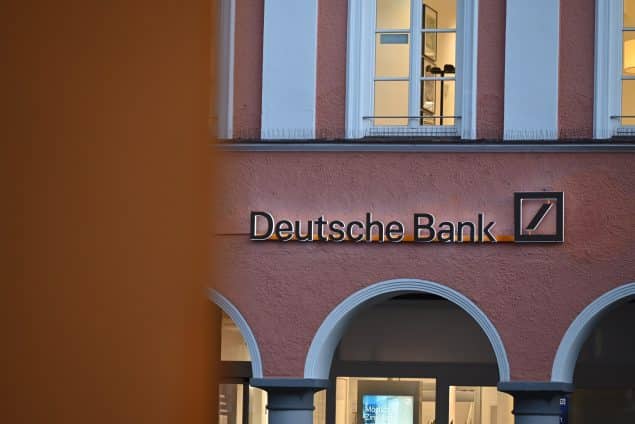Home » US business news • World Business & Employment News » Federal Reserve fines Deutsche Bank $186 million over money-laundering orders
Federal Reserve fines Deutsche Bank $186 million over money-laundering orders
https://www.whatjobs.com/news/world-news/federal-reserve-fines-deutsche-bank-186-million-over-money-laundering-orders

By Nithya Bose in US business news, posted July 20, 2023

The Federal Reserve has fined Deutsche Bank $186 million for being slow to fix problems with its money-laundering controls the bank regulator identified in 2015 and 2017.
The Fed found “Deutsche Bank made insufficient remedial progress” in complying with the orders it had previously consented to.
The central bank issued a new order requiring Deutsche “to prioritize completion” of the controls outlined in the earlier orders.
Read More: Illumina fined $476 million by EU for premature Grail acquisition
While some progress has been made in enhancing the bank's controls, the Fed said the bank is “exposed to heightened levels of compliance risk” in detecting money laundering or US sanctions violations.
Deutsche responded to the fine, saying Fed’s actions are related to “our historic tardiness in adhering to older enforcement actions and agreements.”
But it said steps are being taken to improve its money-laundering controls, including augmenting its financial crimes investigation team with additional employees.
Read More: Federal Reserve and SEC investigating Goldman Sachs’ role in SVC’s failure
Over the past decade, Deutsche has faced various sanctions and hefty fines due to its failure to address money laundering issues.
It has been involved in allegations of enabling tax violations, price fixing, and foreign bribery.
The bank reached a $7.2 billion civil settlement with federal prosecutors in 2017 for selling toxic mortgage products before the 2008 financial crisis.
In 2020, Deutsche paid a $150 million fine to a New York bank regulator for its banking relationship with the disgraced financier Jeffrey Epstein.
Need Career Advice? Get employment skills advice at all levels of your career
The Fed's orders in 2015 and 2017 were related to Deutsche Bank's dealings with Danske Bank's Estonian branch, which also encountered regulatory issues.
Specifically, Deutsche was found to have inadequately monitored transactions involving high-risk customers in its association with Danske Bank.
The relationship with Danske's Estonian branch ceased in 2015.
Last year, the bank faced its consequences when it pleaded guilty to charges arising from a long-running money-laundering probe and agreed to pay a $2 billion penalty.
Follow us on YouTube, Twitter, LinkedIn, and Facebook.












